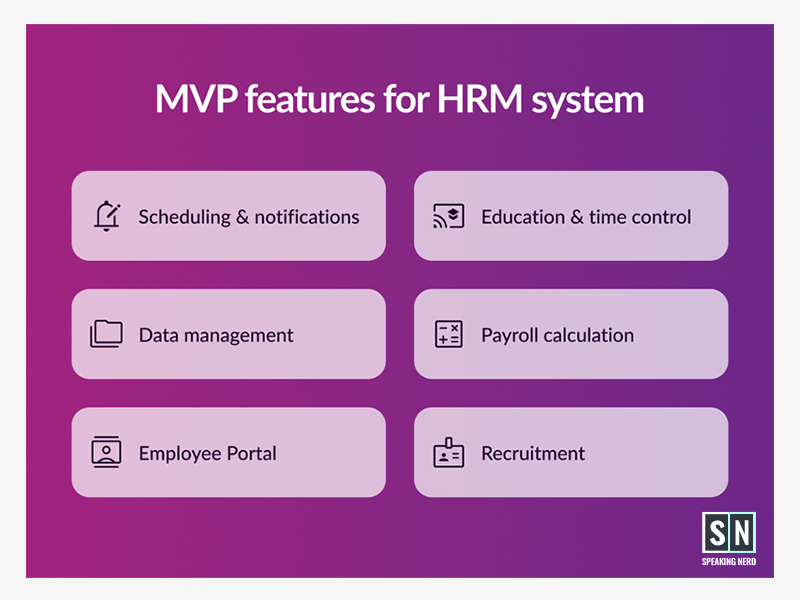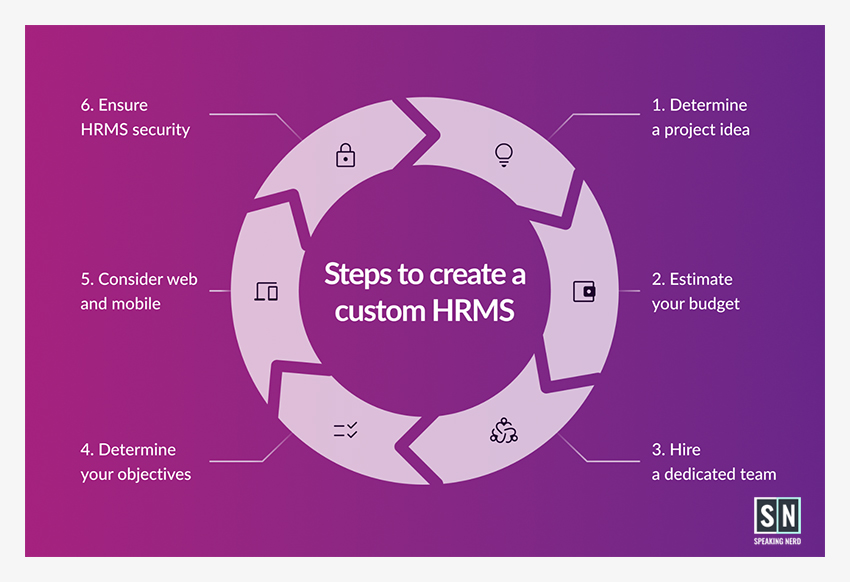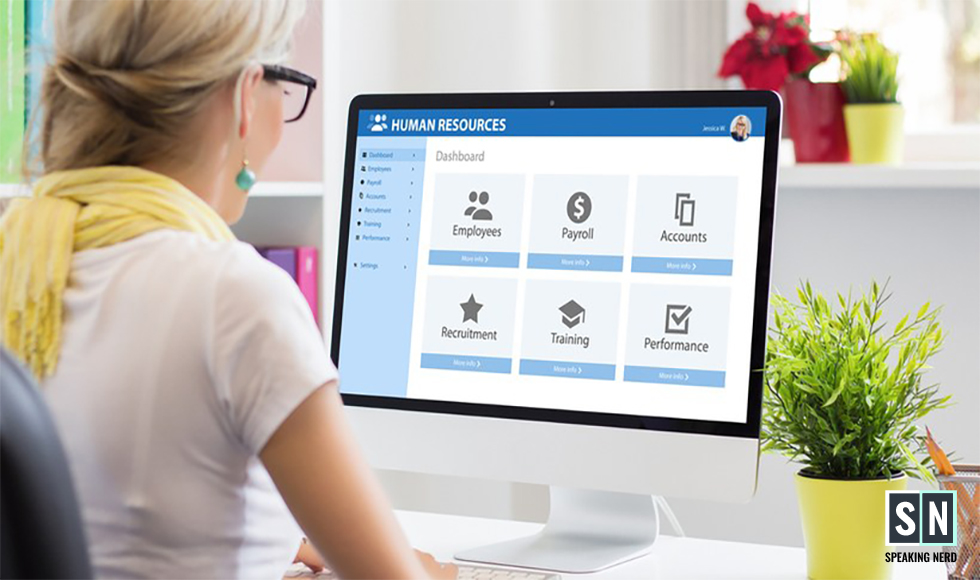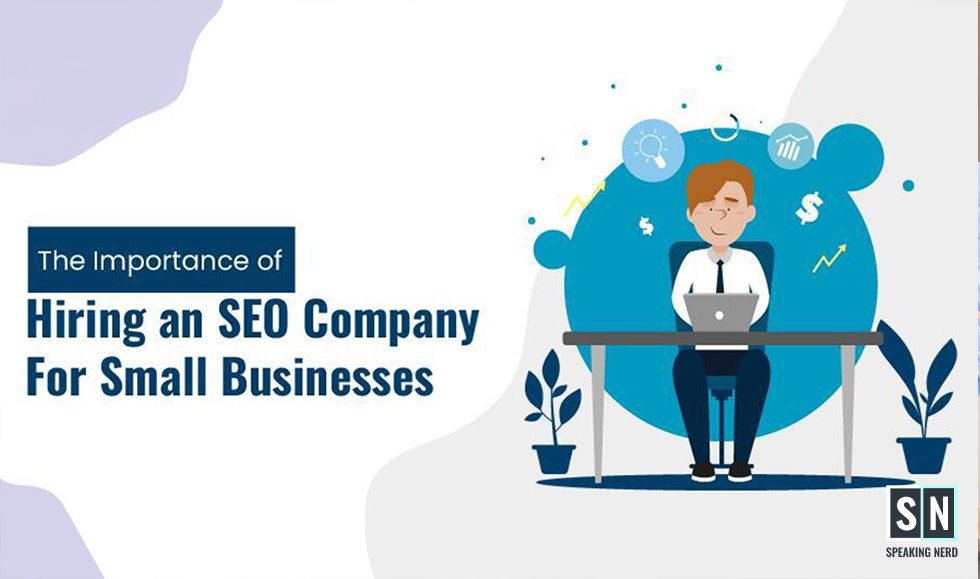Overview
Human resource managers have tons of activities to deal with throughout a working day: they need to measure and track employees’ performance, find out whether the team is satisfied with the working conditions, as well as proceed with a lot of documentation working with large amounts of data. Human resource management systems (HRMS) can be effective and trustworthy helpers in HR everyday work.
Table of Content
So, more and more businesses integrate HRMS software into their HR processes to boost human resource KPIs, cut costs and automate the HR managers’ paperwork. You can also create HRMS software, and our post will give you a prompt how to do it considering all the essential details like more information about benefits of the human resource management systems’ implementation, their feature set to use, and many other interesting details.
Let’s start discovering them right now!
The Essence of the Human Resource Management System
Before talking about the HRMS pre-development issues, let’s first dig deeper and find out the basics of this software.
Human Resource Management System (HRMS) is a digital platform intended to assist HR managers in achieving one of their main goals, such as retaining talented experts in the company.
The convenience of such a system makes it possible to accomplish all the duties required for effective personnel work (for example, assigning and tracking tasks, or performing accounting procedures). HR managers' tasks are made simpler by a single multitasking HR software since they no longer require a lot of paperwork.
Moreover, there are other goals HRMS software help human resource managers deal with:
- Measuring staff productivity dealing with qualitative and quantitative indicators of the employees’ work.
- Increasing employees’ satisfaction and making successful business decisions.
- Creating good and healthy environment inside the company.
- Integrate new employees in business processes accurately and delicately, etc.
So, to gain success in HR management, you should necessarily develop HRMS system and implement it in your business flows. By the way, it’s automated that means it suits well both for medium-sized businesses and enterprises.
HRMS Software Development: What Benefits You Can Get From Specialized HR Solution
Human resource management systems will change your HR managers’ work to better due to a range of undeniable benefits this kind of software can bring. Let’s reveal the most crucial of them one by one, fully discovering the scalability of HRMS software.
Automating crucial processes and saving costs
HRMS software will help you limit the amount of human mistakes while you deal with the essential and complex aspect of your company activity (e.g., finances). Benefits management, calculations of the payroll and other processes will be even more precise. In its turn, such an accuracy will lead to saving more budgetary funds, as well as their wise distribution.
Real-time tracking of employees’ progress
An employee's motivation is key to their productivity. Typically the workers' performance declines as motivation wanes, and the specialized software aids the HR manager in revealing the issues and offering the best fitting solutions. Using the HRMS, you may monitor each employee's development, as well as create programs to evaluate and reward their efforts.
Onboarding and recruitment processes are enhanced
HRMS streamlines the hiring process, saving time and money that may otherwise be higher, by compiling and tracking prospects in one place. Many software solutions for HR flow management provide capabilities to help with the recruiting process as well as employee adaptability. By streamlining applicant searches, interviews, and assessments, these technologies enable you to locate the finest individuals for the position with less effort.
Planning and organization of payroll
The machines can also handle all the budget planning and scheduling activities like payroll taxes, benefits, and employee wages. An HRMS schedules and calculates paychecks while keeping track of all the relevant figures, data, and personnel.
Ready-Made or Custom HRMS: What To Choose?
Planning to create your own HRMS, you should firstly decide whether it should be ready-made or custom. In order to better understand what option to choose, let’s consider the basics.
A ready-made HRMS app isn't intended for a specific type of business. It's used by a huge number of different companies and has a limited functionality which cannot satisfy all the arising HR needs. Custom HRMS will can be set to solve all the challenges your business can meet during handling the HR processes.
You save money on custom system development as you do not have to pay for licensing. You won't need to replace a custom system with a paid solution, as in the case of a ready-made solution when it's no longer supported, and wait for a new app update with new features and without some necessary old ones. If you want to update your custom HRMS app, you can contact the development company that created the original product.
Your own HRM system will provide you with the tasks you need only for your business.
Additionally, by enhancing cooperation with features that can be customized, you may outperform rivals that utilize pre-made solutions and make your organization more competitive. This way, you'll offer your workers what they desire and inspire them to work.
MVP Features for an HRMS
When thinking out your own HR software development, you should take into account the following points to care about:
- An intuitive user interface for a great customer experience
- Integration with legacy applications and software solutions
- HRMS scalability
- Customer support
- MVP functionality to include
MVP means Minimum Viable Product, where all the features essential for the system’s correct work are included. You should start with developing your MVP version to check the viability of your HRMS concept, save money and obtain valuable feedback from the early users.
The MVP functionality to include in your HRMS software is given on the image below.

Now, it’s high time to talk more about the HRM system development process during which the design, functionality and all the other software creation points should be brought into life.
Essential Steps to Consider When You Create HRMS
Here are the next steps that can help you arrange your HRM system development as you require. You can facilitate your job and apply to an outsourcing software development company to collaborate with. Come to them with your drafts or only with a raw project concept — the specialists will guide you through the HRMS creation process and pass all the below steps with you.
Determine the idea of your project at first.
Identify how it can help you improve your workflow. You'll waste time and money if you don't understand what you need; thus, it's very important to list the requirements for HRMS software.
Estimate a budget
Analyzing the project requirements, you should determine the approximate cost of your custom HRMS development. You can also ask for a rough estimate from the one or several software companies you found.
Build and manage a project team
To create a quality product and avoid mistakes, hold a meeting with your team, discuss the project plan and listen to an HR manager's ideas.
Determine your objectives
Think out the scope, goals of the project, write down the functional requirements for the product with your team.
Think about mobile and web version
The important thing is to create a custom HRM system both for web and mobile versions.
Make your HRMS secure
Custom HRM system security must be at a high level, because such systems save employees’ personal data, confidential information about a company and other secure data. During HRMS development it should be applying the encryption methods and security protocols. To protect the HRM system, its access can be provided with login only with a password or two-factor authentication.

Bottom Line
In order to get a successful custom HRM system, you should consider many aspects that will make it qualitative, easy to use and scalable. A skilled outsourcing software development vendor is capable of helping you: they’ll consult you as to all the tech issues you need to ask, and they’ll do everything to deliver you a solution for boosting your HR processes and streamlining your business activities.


